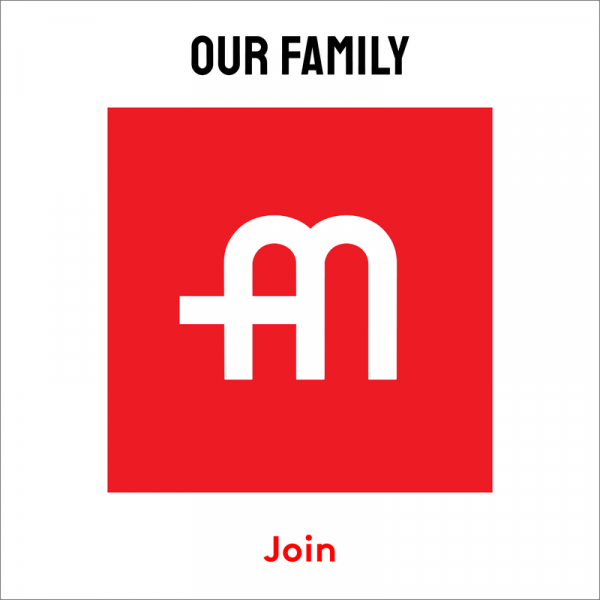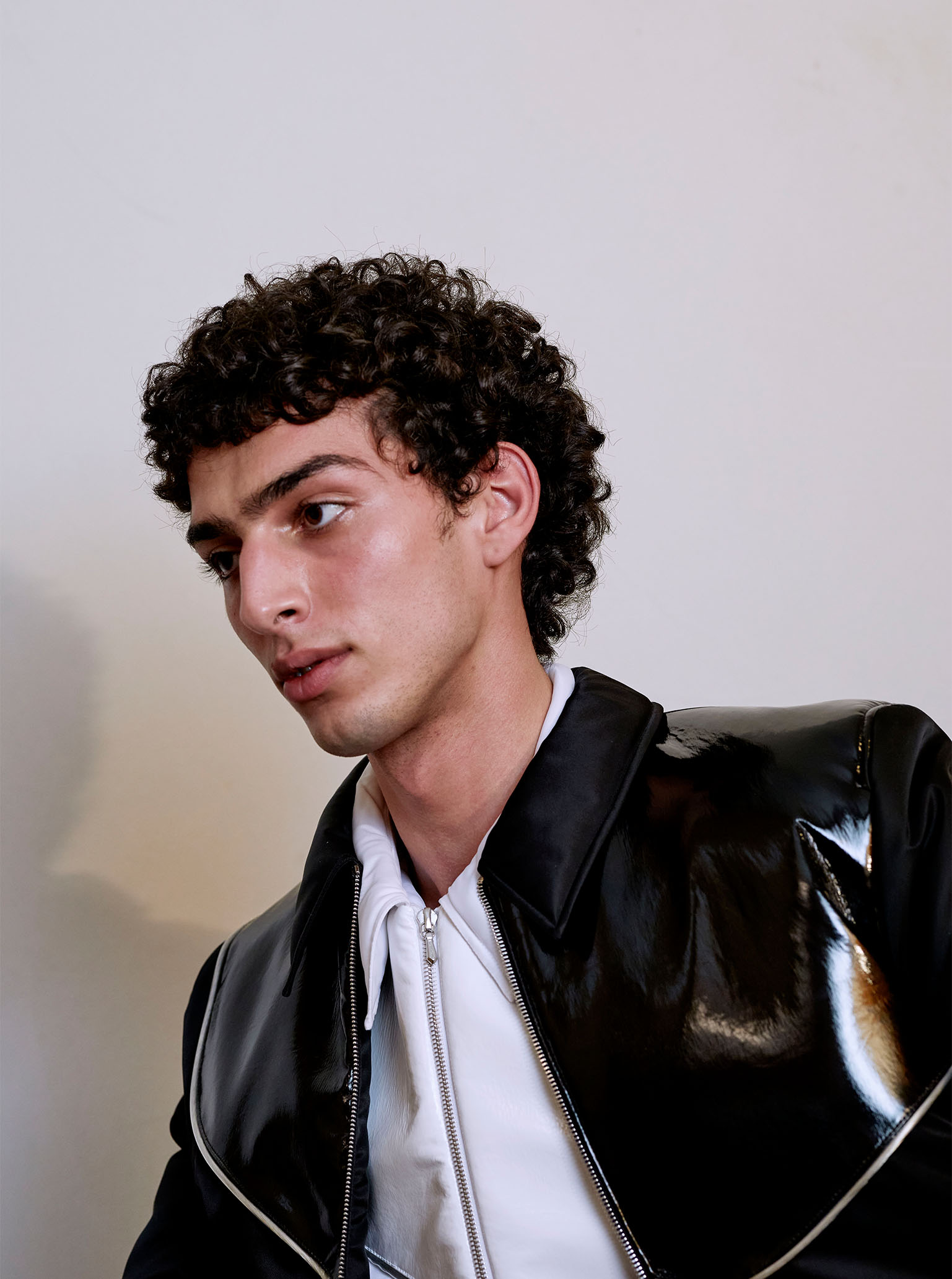
Qaher Harhash has been working as a model in Berlin for two years.
Coming from a Palestinian area in East Jerusalem, his mother used to round him and his eleven siblings up when the electricity went out. So the whole family would gather around the gas heater and the mother would tell stories. Qaher wants to combine this memory with modeling: He wants to tell stories with his work. He captivated our crew in the Black Forest as well and told us about the many prejudices he has to live through being Palestinian. We felt it was time to talk to him more.
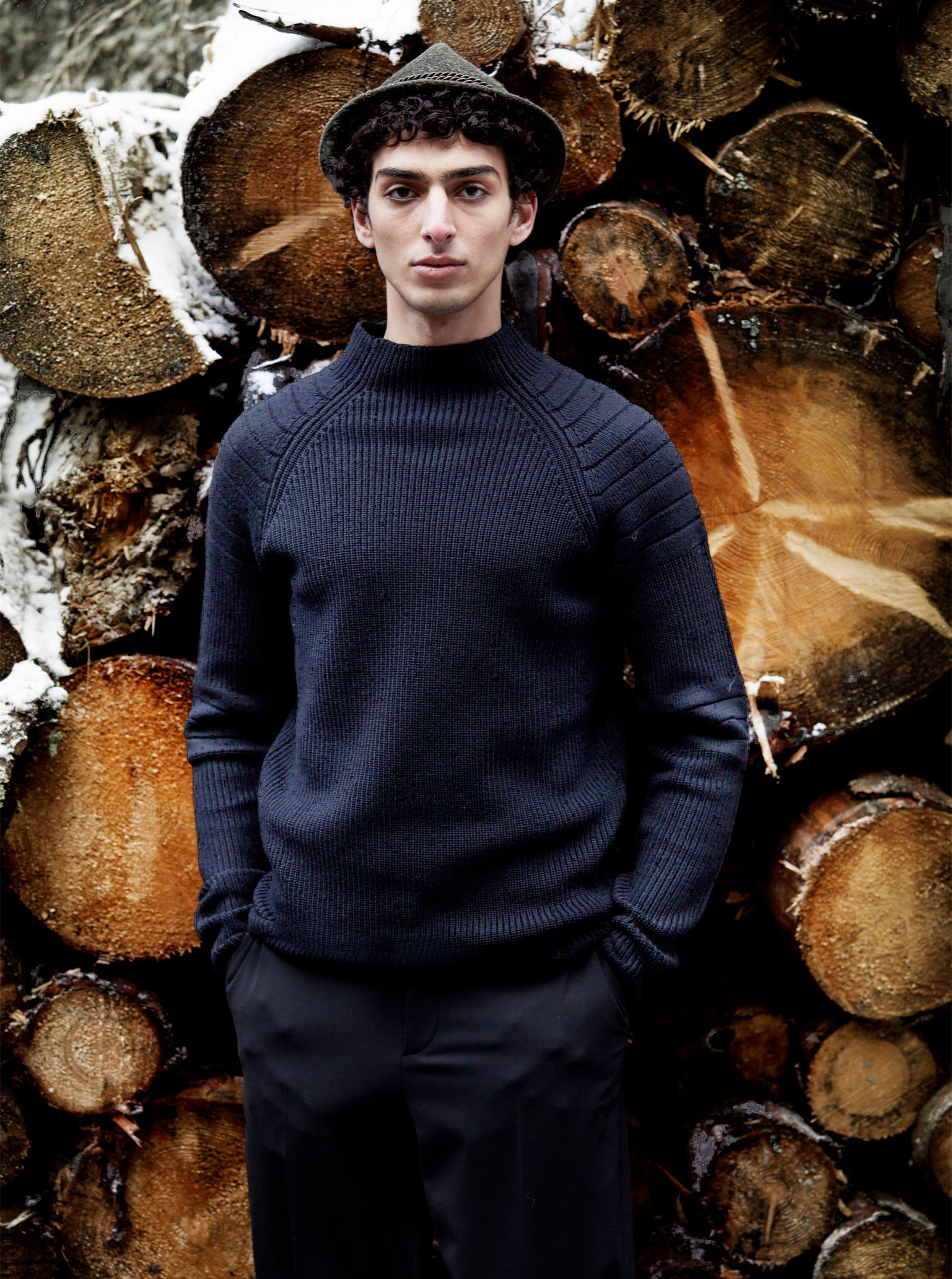
“My mother is female, but she is as strong as 100 men. She is so strong; she teaches me what masculinity is and what femininity is.”
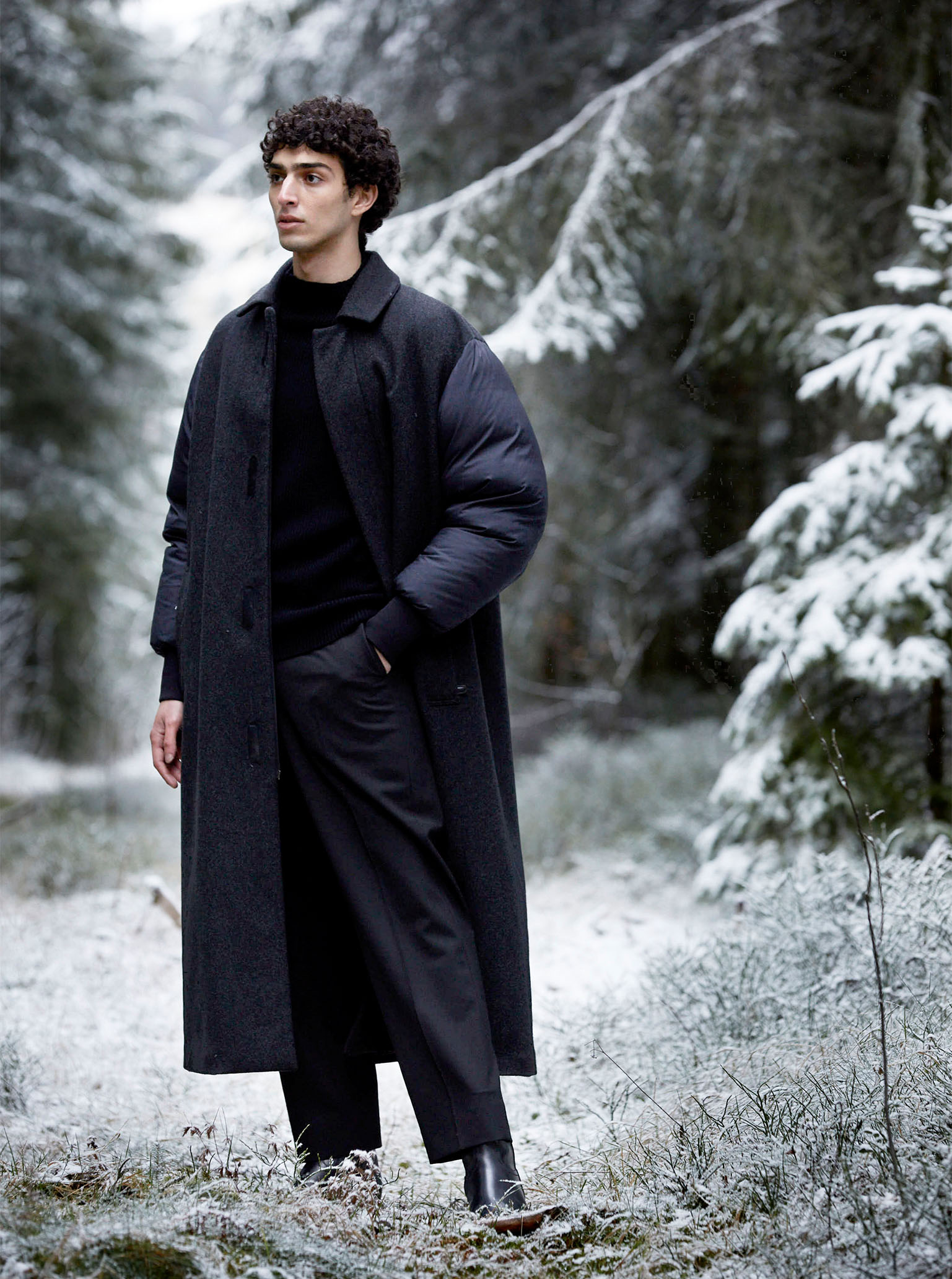
Long charcoal grey coat made of wool felt with bomber style synthetic sleeves and vertical pockets GIORGIO ARMANI; Mock neck ribbed sweater with contrast pattern along shoulders KARL LAGERFELD; Straight fit smooth worsted wool yarn pants with center pleat VALENTINO.
Achtung: We traveled to a mystical place for our current issue: the forest. We mirror the fairy tale world against the fashion world. You joined us in the Black Forest for this mission. The modeling business is often described as a dazzling, a dream-like world – like a fairy tale. How did you get into modeling?
Qaher Harhash: Many models are usually scouted. And many of them have no interest in modeling at first and then fall in love while they are working in it. It was different for me. As a child, when I was eight years old my siblings used to turn on Fashion TV and watch catwalk shows. At some point Tyson Beckford came on, who is an African-American model, one of the best, I would say. He walked the runway at New York Fashion Week. And I thought, oh my God, what is he doing? And my sisters said: he’s just modeling. He just walked down the catwalk and people clapped. That doesn’t happen so much now, but back then people were clapping. All that was very interesting for me. I was a curious kid, from that day on I wanted to become a model.
A: So you were not discovered? How did you start modeling?
QH: When I was about 16, I was back home in East Jerusalem and started applying to modeling agencies in Tel Aviv. I was such a small, naïve boy who thought: Maybe I can bring people together. By showing that I am a Palestinian person who is willing to work with creative people who are Israelis, who want to tell their story and who actually want to empower Palestinians. That was my idea when I started the project. And all the agencies responded to me: We are not ready for a Palestinian male model. Some of them didn’t even respond and the ones that did respond were like: You’re cute, but you’re Palestinian and that’s a problem. No, I laugh about it, but at that time I was wondering if there was something wrong with me and I gave up, I was sure there was no future for me in this field.
A: But now you work here in Germany as a model. How did that come about?
QH: My sister said: Hey, why don’t you go to Germany and study German and go to university. She works as a civil engineer and she’s a really hard worker, she supported me with money. In 2018, I came to Berlin. I was sitting at home and I thought: Ok now I’m in Berlin, it’s a fashion capital, why can’t I try it here. So, I messaged Iconic Management on Instagram. After a couple of hours, they sent me a message and asked me if I would like to come by. And I said, yes, I’d love to. And in the end, they liked me and wanted to sign me.
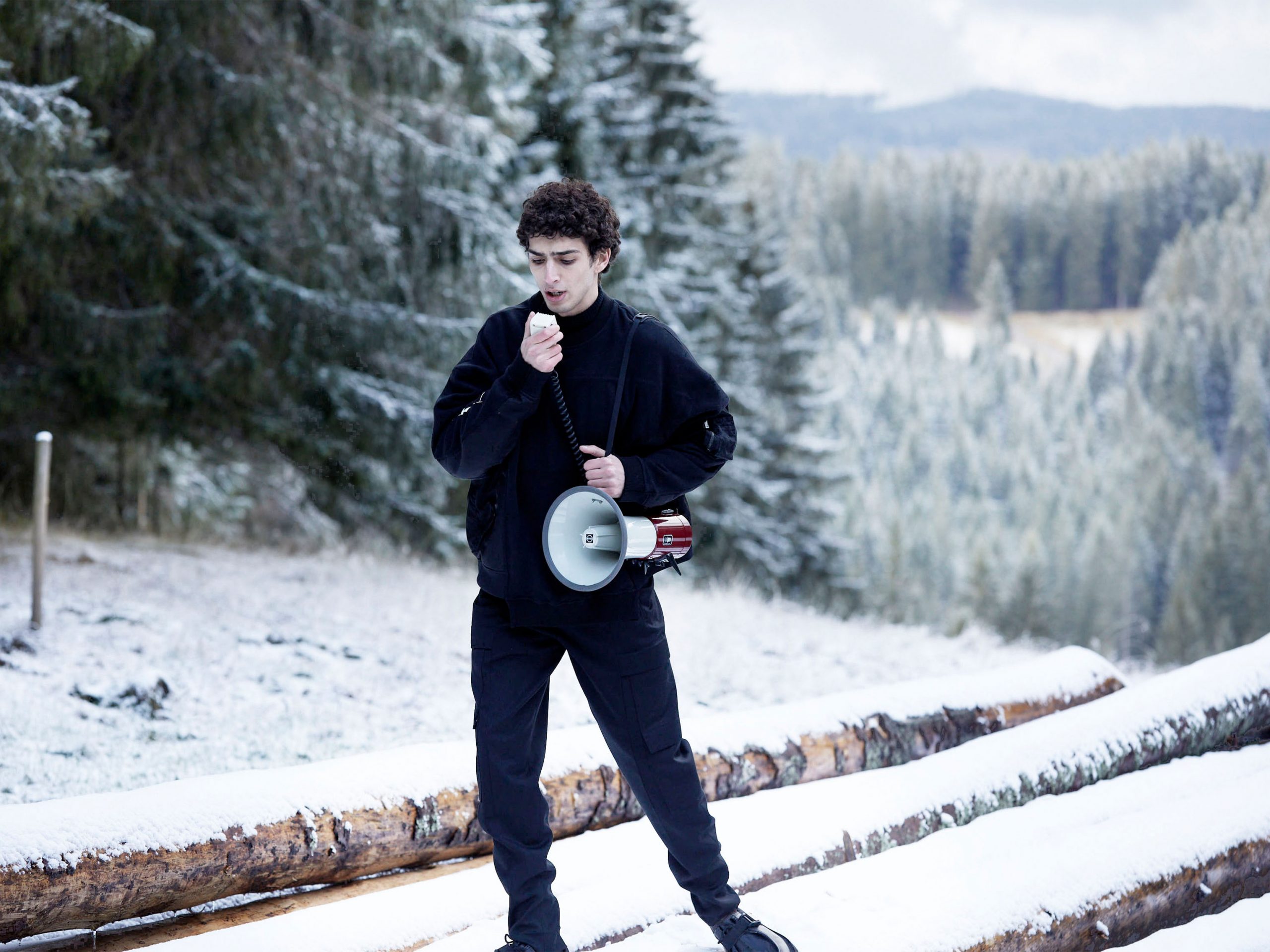
Qaher’s mother used to call him and his siblings around the gas heater and tell them stories when the electricity went out. Qaher wants to combine this memory with modeling: he wants to tell stories. In this picture Qaher models a cotton sweater with synthetic patches along the waist, vertical flap pockets and VLTN logo on the front as well as black calfskin derby with VLTN logo buckle VALENTINO and an utility wear inspired pants in black with pleats along the waist, large front pockets and oversized belt loops ERMENEGILDO ZEGNA XXX.
A: What fairytale ideas did you have about the industry when you started your career and how do you perceive it now?
QH: Working with amazing people is definitely a fairytale for me. Because you work with people who are very talented and have different narratives and opinions about things. But it’s also a very tough industry. In fairy tales I would say there’s always hardship and there’s a climax towards the end where the hardship is most concentrated, and then there’s a twist at the end where it all falls apart, and still the end is usually happy. I feel like this industry definitely has those hardships. It is an industry based on looks so there is definitely racism in the industry. For some people with a certain look, it is hard in the industry. Some people, especially models from the Middle East I see hardly represented. That’s one of the downsides. But there are also a lot of people in the industry that don’t know a lot about representation, but they ask questions because they are not afraid. And they know that asking questions is how you will learn.
A: When you mention the lack of representation, role models are important for people to look up to. Do you have such role models?
QH: My mother is female, but she is as strong as a hundred men. She taught me what masculinity is and what femininity is. After God, that is my role model, my mother.
A: If you could write the industry yourself like a fairy tale world, what would that fairy tale be?
QH: I think the fairy tale would be that people who have dreams coming from the Middle East are being represented.
A: At the end of a fairytale there is always a moral. Which moral have you learned from the industry so far?
QH: Never lose yourself. Never compromise who you are as a person. Always work hard and learn to be happy with who you are and what you have. Because if you don’t, you will constantly be unhappy. Your friends and family are literally flowers around you, water them. We need to nurture what is good and be there for each other. That’s what we have.
Title image: Qaher is wearing black patent jacket with white contrast lines and white zip-up hoodie ALEXANDER ROYS.

